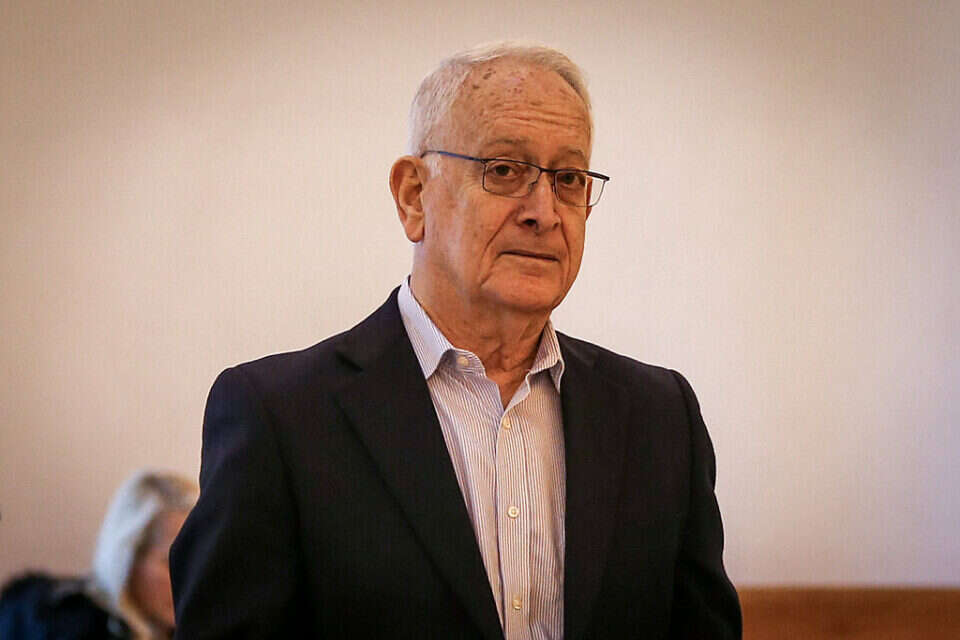With Israel still bleeding and nerves exposed, U.S. government officials, in cooperation with various local officials, continue to devoutly promote the old two-state solution. In other words, the establishment of a united Palestinian state under the Palestinian Authority in the Gaza Strip and Judea and Samaria alongside the State of Israel.
But the Israeli public is not there. Not even at all. Long before October 7, in September 2022, a survey by the Israel Democracy Institute found that less than a third of Israeli Jews support a two-state solution. A year later, in a survey conducted by "securityists" a month before the massacre, some 45 percent of Israelis said they had no chance of reaching a permanent settlement with the Palestinians. About 40 per cent said they believed the chances were small. 77% of the respondents conditioned the contacts for a political settlement on an end to incitement against Israel.
The Israeli public is apparently not yet ready to discuss the political question of "the day after"; Not when the soldiers are on the battlefield, not when the abuse hasn't ended. For many Israelis, the PA is only moving away from being a viable option for future rule in Gaza. Justifying the massacre by its officials does not help, to say the least. Suddenly, Israeli security control seems like a more effective solution to safeguard the lives of Jewish citizens. And in the midst of this discourse, the Palestinians do not stop talking about the '48 territories. So what causes the mainstream media in Israel to push forward the two-state solution?
In the Israeli media, the mood regarding the day after is characterized by escapism – avoiding the disastrous local reality and looking outward to the West. State Channel 12, whose ratings have been breaking records since the war, may be leading the In America We Trust agenda – but it is not alone. The American position is aggressively marketed in most studios. Journalists talk about it, commentators engage in lively discourse about it, and former senior public officials explain why the two-state solution will benefit our security. Any other perception is labeled as political, or alternatively, absent from the media discourse.
Despite the great interest of the Israeli media in the American solution, it is evident that it avoids an in-depth public discussion of the issue. The news broadcasts present many surveys regarding the public's attitudes toward the government, but surveys that examine the public's attitudes toward the establishment of a Palestinian state are almost not. The gap between the public's perceptions and positions and what is reflected in the mainstream news broadcasts that everyone watches is widening, reflecting an urge to cling to American sponsorship and the sense of superiority it provides.
And it's not just in the mainstream media that the escapist position is prevalent. In an op-ed published by Haaretz publisher Amos Schocken, titled "Two states, Netanyahu's move worth considering," he calls on the prime minister to fully adopt the American position. This, in his view, will give Netanyahu world fame that will also clean up his trampled reputation.
The Israeli public is apparently not yet ready to discuss the political question of "the day after"; Not when the soldiers are on the battlefield, not when the abuse hasn't ended. For many Israelis, the PA is only moving away from being a viable option for future rule in Gaza. Justifying the massacre by its officials does not help, to say the least
The dominant discourse in most of the media in Israel has always carried with it a dimension of detachment from the local reality, and alienation from the various publics living here. After such a terrible national tragedy, one might have expected that the media would use its power to create a broad tribal bonfire in which Israelis could bask in the light. But the opposite happens. The enormous vulnerability of the public, the anxiety, the lack of sleep, the uncertainty, the doubts, the endless loops of watching the news – all these are exploited by those who see themselves as the architects of the day after to steer the lost people to the "right path."
Journalistic attempts to mediate a complex truth or to reflect diverse positions are almost non-existent in the mainstream media, but they are as necessary for Israeli society today as air to breathe. October 7 must leave its mark on the media as well. A deep process of cleansing oneself of dictated narratives and agenda-serving spins is not only necessary—it is essential to healing trauma.
Wrong? We'll fix it! If you find a mistake in the article, please share with us

